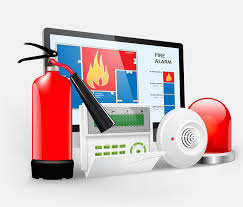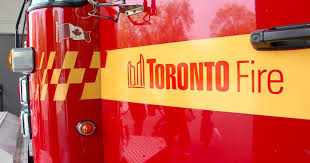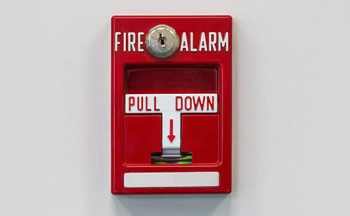 April 2023
April 2023
Fire safety plans are quickly outdated. Once prepared, they should be updated annually.
One concern is that lists of people requiring special assistance should be current. Plans should include names and locations of those with health conditions or disabilities requiring assistance. In the event of evacuation or fire, an outdated list means resources are wasted and deaths can result. Plans may require updating after building systems are changed or if renovations alter floor or room layouts.
Many high-rise building residents don’t know what to do in the event of a fire. Some scramble out of their suite and head up or down to escape. Others remain inside waiting for instructions. Improper resident actions cause unnecessary injuries and death. A door’s fire rating is compromised when decorations are attached or when mats, shoes or scooters are stored in the hallway. More deaths occur in corridors from flammable decorations on doors than from people remaining in their suite.
All doors should close and latch under their own power. When this is not the case a record should be made in a repair log and addressed. A fire department lock box should contain keys for accessing all doors in a building. A master key for all units is cheaper, faster and safer than storing individual keys for each unit.
An annual distribution of resident emergency instructions and responsibilities, along with a form to be submitted by those requiring assistance, is advisable. Supplement this with an information campaign of notices in elevators and electronic communication. Residents should be informed of what life safety equipment is in their unit and fire safety requirements. Using the balcony as storage and resident hoarding are concerns.
Buildings are required to maintain records of tests to prove compliance with code requirements, and provide them to the Fire Department upon request. The Fire Department wants to know your community is working to avoid Fire Code violations. While high-rise communities do a reasonable job of completing annual life safety system tests, they can be less diligent at reporting on repairs required and completed to sprinkler systems, fire pumps, doors, generators and other fire safety systems. The Fire Code requires that these records be maintained for a minimum of two years. When requested, a fire inspector expects to receive all relevant information including that relating to sprinkler systems, fire pumps, doors and generators. Employee training session dates and materials, and resident communications, may also be requested.
When an infraction is identified Fire Code charges may be laid against building managers, board of directors, and possibly unit owners for in-suite infractions. Preventing fire code violations is easier and cheaper than defending against them.
Maintaining a fire safety plan is complicated and possibly beyond the capabilities of building employees. The best approach is to retain the services of a fire code consultant. They are familiar with code changes and avoiding liability while keeping people safe.







